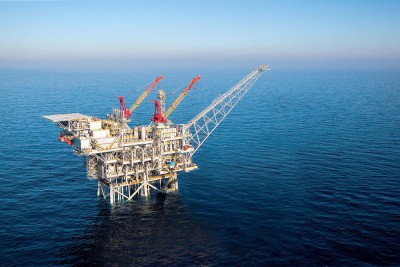
ExxonMobil, the world’s largest publicly traded energy company, is considering exploring for oil and gas in Israel according to Reuters. If this proves to be true, it will set the stage for other energy companies to follow their lead and make large investments there. This would be one of this year’s most important business stories for Israel.
But even more important are the political implications. It would mean that moderate Arab countries including Saudi Arabia now publicly acknowledge the reality of Israel, and tacitly accept the fact that some of their long-standing business partners will do business with it. This is an amazing turn of events since those moderate countries are technically still in a state of war with Israel.
The Bottom Line
But it’s dollars and cents, not politics, that are fueling Exxon’s plans. For decades it was said that Israel had only minimal amounts of energy. Relatively few wells were drilled there, and those that were usually were expensive and only modestly successful.
The bottom line: There was little incentive for major energy companies to risk their lucrative deals already in place with Arab business partners in order to explore for oil in Israel.
This began to change after the Leviathan and Tamar discoveries were made offshore Israel. Even by conservative estimates, both of those wells were transformative finds. Leviathan, offshore Haifa, has enough resources to satisfy Israel’s domestic needs for at least 40 years and is scheduled to come on line in late 2019; the Tamar gas fields is also offshore Haifa; it, too, has huge reserves and is already in production. Despite these discoveries, oil industry powerhouses such as Shell and Total have declined to explore for oil and gas in and offshore Israel.
The dynamics of exploring for energy in Israel are changing, and Exxon would be the largest oil company to do business there. According to Reuters, “Exxon has already met with Israeli Energy Minister Yuval Steinitz in Houston to discuss the upcoming auction in June that Israel will hold for the right to look for oil off its shores. The sub-sea rocks there are estimated to contain 75 trillion cubic feet of gas and 6.6 billion barrels of oil.”
Those are giant reserves by anyone’s standards, and for a small country like Israel they have enormous implications both for its economy and for its political clout.
In January, when a 322-foot-high piece of equipment to support the Leviathan oil platform’s deck arrived from Texas, Steinitz said, “The Leviathan gas field is the greatest natural treasure that has been discovered in Israel, and the arrival of the platform foundation symbolizes our entry into the final stage of its development.”
New Gas Forum
In the last decade, huge gas fields were discovered near Egypt, Israel, and Cyprus, as well as in other areas of the eastern Mediterranean. In February, Exxon, together with its partner Qatar Petroleum, announced a major gas discovery in Cyprus. That field is near two other huge gas finds in the region: Leviathan offshore Israel and Zohr offshore Egypt. These finds have made not only Israel and areas offshore important prospects for big energy firms, the entire region is emerging as a new hot spot for gas exploration and production.
In January, those countries joined with four others to create the Eastern Mediterranean Gas Forum. The seven members are Israel, Egypt, Greece, Cyprus, Jordan, Italy, and the Palestinian Authority. According to the Jerusalem Post, the group agreed to a set of principles that include “expanding their cooperation toward formulating a common policy regarding the development of a regional market and protecting the environment.”
There are additional developments in the region that are changing the status quo. Early in March, the Los Angeles Times reported that “Greece, Israel, Italy, and Cyprus are now set to sign an agreement to build the world’s longest and deepest undersea natural gas pipeline, EastMed, to transport Israeli and Cypriot natural gas to Europe.
This project has the backing of the European Union. Secretary of State Mike Pompeo is expected to push forward the $7 billion project that will help wean Europe off Russian natural gas.
Also, earlier this month, Pompeo urged oil and gas companies to use their clout in world markets to advance the Trump administration’s foreign policy agenda. This includes helping the administration’s efforts to isolate Iran and Venezuela.
Tip Of The Iceberg
Israel is hopeful that the coming licensing round will draw significantly larger interest than the previous one, when only two companies bid.
One reason for this optimism is that Israel has signed major export deals with Jordan and Egypt over the past two years, opening new markets to companies looking to sell Israeli gas. Also, Egypt saw rapid growth in natural gas production following the discovery of giant fields in the Mediterranean.
With developments regarding Israel’s energy muscle evolving so quickly, wouldn’t it be nice if they become a member of OPEC?
Sources: seekingalpha.com; dailywire.com; reuters.com; timesofisrael.com; vosizneias.com; zacks.com.
By Gerald Harris
The New Energy Power In The Middle East
Typography
- Smaller Small Medium Big Bigger
- Default Helvetica Segoe Georgia Times
- Reading Mode




